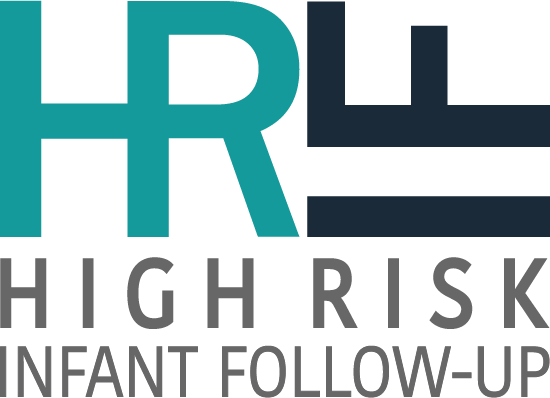The HRIF Reporting System Database contains detailed information on all infants and children eligible for follow-up care. Eligibility for HRIF services begins at birth and lasts up until three years of age. Infants are medically eligible for the HRIF Program when the infant:
Met CCS medical eligibility criteria for NICU care in a CCS Program-approved NICU, regardless of the length of stay (as per Number Letter 05- 0502, Medical Eligibility in a CCS Program-approved NICU or the most current N.L.). NOTE: Medical eligibility includes neonates who require direct admission to a CCS-approved PICU, who are never admitted to a CCS Program-approved NICU, but who otherwise meet all medical eligibility criteria for HRIF services.
OR
Had a CCS Program-eligible medical condition in a CCS Program approved NICU, regardless of the length of stay, even if they were never CCS Program Clients during their stay (as per California Code of Regulations, Title 22, Section 41515.1 through 41518.9, CCS Program Medical Eligibility Regulations).
AND MET ONE OF THE FOLLOWING
Small Babies
Birth weight ≤ 1500 grams or the gestational age at birth < 32 weeks.
Big Babies
Birth weight > 1500 grams and the gestational age at birth ≥ 32 weeks and one of the following criteria was met during the NICU stay:
- pH less than 7.0 on an umbilical blood sample or a blood gas obtained within one hour of life) or an Apgar score of less than or equal to three at five minutes or an Apgar score less than 5 at 10 minutes.
- An unstable infant manifested by hypoxia, acidemia, hypoglycemia and/or hypotension requiring pressor support.
- Persistent apnea which required caffeine or other stimulant medication for the treatment of apnea at discharge.
- Required oxygen for more than 28 days of hospital stay and had radiographic finding consistent with chronic lung disease (CLD).
- Infants placed on extracorporeal membrane oxygenation (ECMO).
- Infants who received inhaled nitric oxide greater than four hours, and/or treatment during hospitalization with sildenafil or other pulmonary vasodilatory medications for pulmonary hypertension.
- Congenital heart disease requiring surgery or minimally invasive intervention.
- History of observed clinical or electroencephalograhic (EEG) seizure activity or receiving antiepileptic medication(s) at time of discharge.
- Evidence of intracranial pathology, including but not limited to
- Intracranial hemorrhage (grade II or worse)
- White matter injury, including periventricular leukomalacia (PVL)
- Cerebral thrombosis
- Cerebral infarction or stroke
- Congenital structural central nervous system (CNS) abnormality
- Other CNS problems associated with adverse neurologic outcome
- Clinical history and/or physical exam findings consistent with neonatal encephalopathy.
- Other documented problems that could result in neurologic abnormalities, such as:
- History of CNS infection
- Documented sepsis
- Bilirubin at excessive levels concerning for brain injury as determined by NICU medical staff
- History of cardiovascular instability as determined by NICU medical staff due to:
- Sepsis
- Congenital heart disease
- Patent ductus arteriosus (PDA)
- Necrotizing enterocolitis
- Other documented conditions
Confused? Use the flowchart below to determine if a baby is eligible for entry into the HRIF Reporting System Database.

